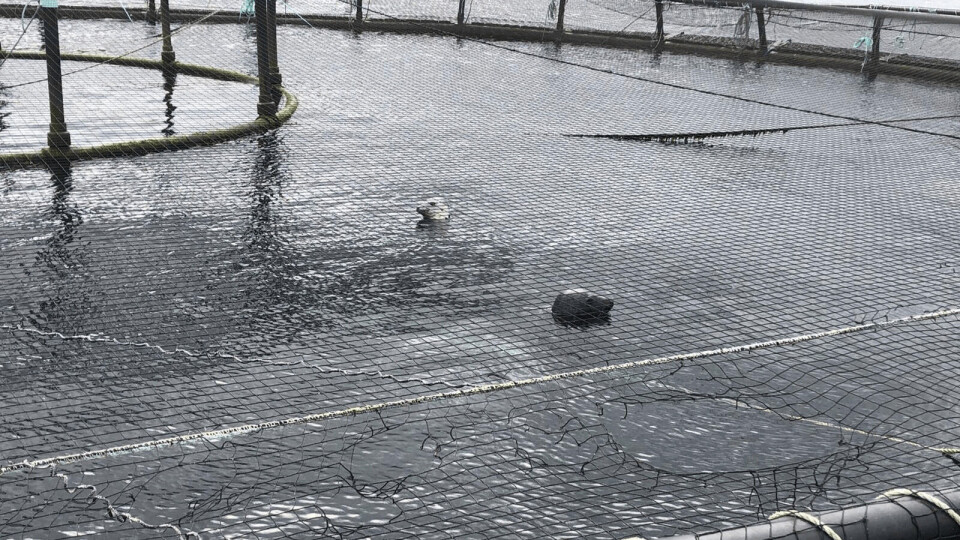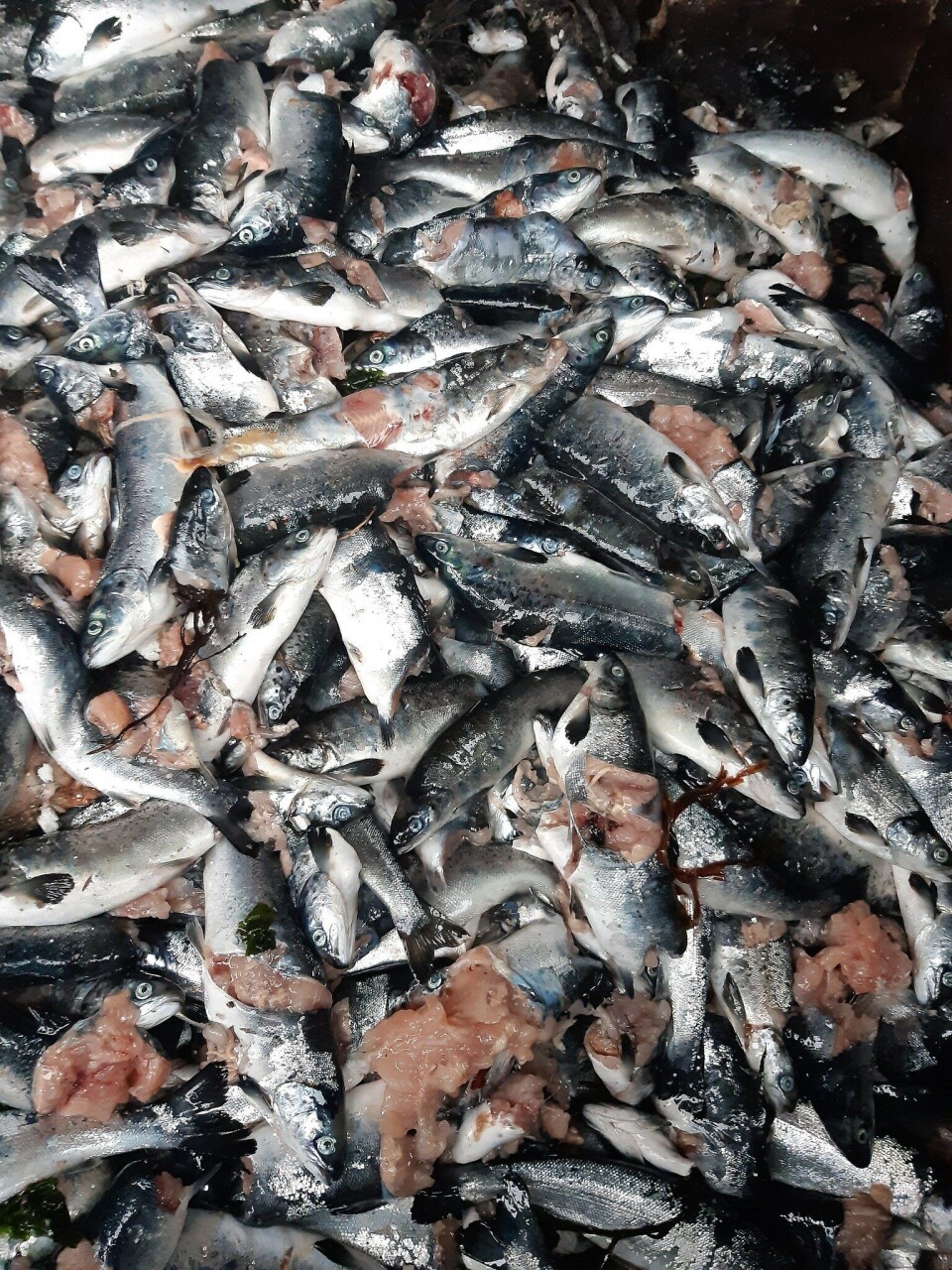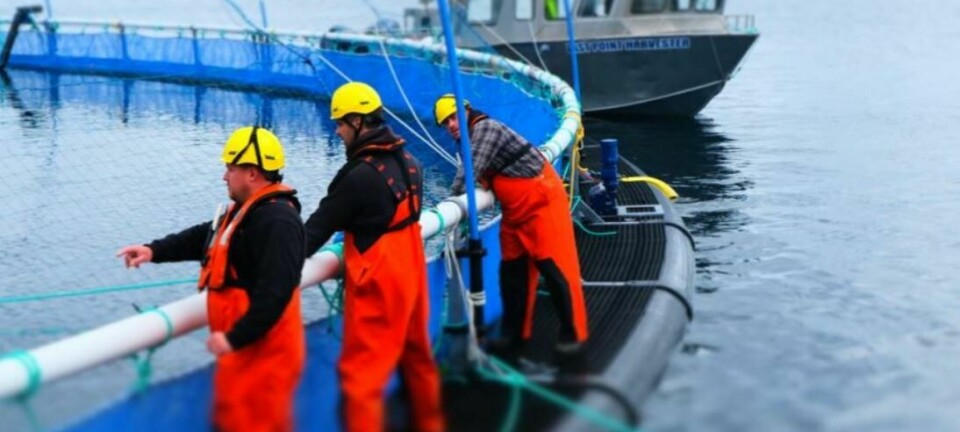
Disarmed salmon farmers call for compensation for seal attacks
Scotland’s salmon farmers today asked Scottish Government ministers to consider financial compensation for the £13 million annual losses caused by seal attacks on their fish.
The call by the Scottish Salmon Producers’ Organisation (SSPO), came as figures were published showing that 79 seals were shot in the last 12 months by salmon farmers – the last year farmers were permitted to shoot seals.
A change in law, which took away one of the legislative exemptions that allowed farmers to shoot seals as a last resort, came into force on January 31 this year. The change was made to keep Scotland compliant with the US Marine Mammals Protection Act, which effectively bans the import of any seafood, if marine mammals are harmed during its production.

No guidance
The ban on seal shooting ensures Scottish salmon can continue to be exported to the United States after January 1, 2023 but has left the industry with a problem.
The SSPO said that despite repeated requests, the Scottish Government have failed to provide any guidance on what fish farmers should now do if a seal gets into a pen, or how to deal with seals harassing or attacking fish from outside the pen.
The number of seals shot in the 12 months to January 31 is the highest for seven years, which the SPPO said reflects the increasingly serious threat seals pose to farm-raised salmon.
£8m on anti-predator nets
With very few natural predators, Scotland’s seal population is booming, with numbers estimated to be at least 132,000. The sector has spent £8 million in the last 12 months on anti-predator nets to protect fish from seals.
The SSPO said seals are also a threat to wild salmon stocks and that almost as many seals have been shot by wild fishery interests in the last five years as by salmon farmers.
According to the SSPO’s figures, more than 500,000 farmed salmon were killed by seals in 2020, with many more are likely to have died from the stress of being in close proximity to a seal in a salmon pen.
This equates to more than £13m in lost revenue for Scotland’s salmon farmers, a loss which they say should be compensated for in the same way that land farmers are for losses caused by livestock killed by severe weather or protected predatory birds.
‘The law is a mess’
The fish farmers point out that they are prohibited from killing seals under two pieces of legislation, but also have a legal duty to protect the welfare of their fish.
SSPO chief executive Tavish Scott said: “The Scottish Government has stopped fish farmers taking action to protect the welfare of fish without putting anything else in place. The law is a mess with three conflicting legislations. Farmers don’t know what they are legally permitted to do if a seal gets into a salmon pen.
“Our farmers dedicate their careers to looking after their livestock and they also have a legal duty to protect their fish but ministers have given them no options at all. We need detailed, workable guidance and we need it urgently.
Deterrence options removed
“Members have already invested more than £8 million in anti-predator nets in just the last year. But these latest figures show half a million fish were lost to seals. So, seals can still find their way into salmon pens.
“The government has taken virtually every option of deterrence away from salmon farmers. Therefore, the government must recognise the need for compensation. Our members cannot be expected to cope with millions of pounds in losses every year with absolutely no guidance from the Scottish Government as to how they approach this problem.”
The SSPO is calling for clear guidance from Marine Scotland and the Scottish Government on what farmers should do if a seal gets into a salmon pen, and a discussion on the issue of compensation between ministers and the farmed salmon sector in Scotland.
Sustainable protection methods
A Scottish Government spokesperson said: “As of 1 February 2021, licences are no longer being granted to fisheries and fish farms for the purposes of protecting the health and welfare of farmed fish or to prevent serious damage to fisheries or fish farms. The changes to the legislation will provide enhanced protection for Scottish seals and also increases the penalties associated with the killing, injuring or taking of a live seal, bringing it into line with the most serious wildlife offences.
“However, we appreciate that part of the sector may face the risk of increased seal predation following changes to the seal licensing system. While some producers had already moved away from the lethal control of seals we will work with the industry to find sustainable ways of protecting fish from predators, and will discuss the requirement for guidance on seal related issues. There are currently no plans to compensate for stock loss as a result of seal attacks.”






















































